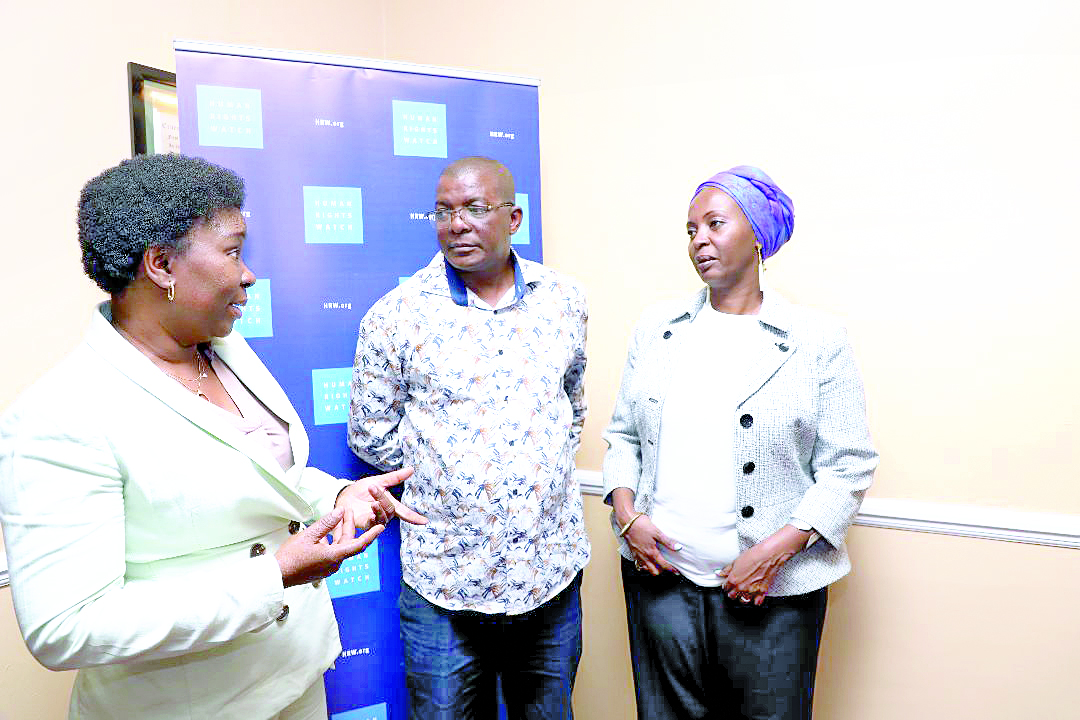African leaders’ human rights record faulted
By Zadock.Aangira, January 13, 2023African leaders have failed to tackle widespread abuses against civilians by State security forces and other armed groups, Human Rights Watch has said.
The HRW in its World Report 2023 released yesterday further revealed that the leaders did not prioritise justice efforts for victims of atrocities.
“These violations occurred against a backdrop of backsliding on democratic safeguards and rule of law,” HRW said.
To deal with abuses the HRW has recommended that the African Union (AU) and subregional mechanisms should urgently adopt measures and establish systems to ensure rigorous human rights monitoring and reporting in areas of conflict, and to avert further atrocities and humanitarian catastrophes.
“The regional efforts to address certain crises in Africa in 2022 have lacked sufficient political will and leadership, leaving countless civilians caught up in conflict with nowhere to turn,” said Mausi Segun, African director at HRW.
“The best way to ensure effective African solutions to African problems would be for leaders to efficiently deploy the strong instruments at their disposal to protect victims of human rights abuses,” she added.
According to HRW, in at least 15 armed conflicts, including in the DRC, Cameroon, Ethiopia, Mozambique, Mali, Burkina Faso and South Sudan, government forces or non-State armed groups have been implicated in abuses against civilians.
However, there has been some progress in ensuring justice for serious crimes. Trials began in the Central African Republic and Guinea, while the International Criminal Court (ICC) opened trials for serious crimes implicating militia leaders in the CAR and Sudan.
In northern Ethiopia, the conflict in the Tigray, Amhara and Afar regions has also had a devastating impact on the civilian populations. Significant parts of the Tigrayan population remain displaced and without access to desperately needed humanitarian assistance, according to HRW.
The HRW also said the resurgent Rwanda-backed M23 rebel group in Eastern Congo committed renewed atrocities in the region, while other armed groups, and at times Congolese soldiers, have also committed widespread abuses as impunity fuels cycles of violence.
In November, an AU-led negotiation culminated in a cessation of hostilities agreement in Ethiopia’s Tigray conflict between the federal government and Tigrayan authorities.
In Mozambique, the regional Southern Africa Development Community (SADC) and Rwanda supported the Mozambican military in the armed conflict with the Islamist insurgency known as Ansar al-Sunna Wa Jamma (ASWJ), which is associated with the Islamic State.
Threatening sanctions
The hostilities in Cabo Delgado province have resulted in attacks on civilians and the internal displacement of more than 940,000 people over the last four years.
In West Africa, notably Burkina Faso, Guinea, and Mali, there has been no improvement in the conditions that precipitated recent coups. The AU and Economic Community of West African States responded by suspending membership and imposing or threatening sanctions.
Increasing criticism of foreign counterterrorism operations by Mali’s military junta and the unrelenting armed Islamist violence in the country led to the withdrawal of French and other European Union troops from Mali.
A surge in fighting in Mali and the Central African Republic coincided with reports of horrific rights abuses by foreign mercenaries, including the Russia-linked Wagner Group.
However, the regional response was muted when elected civilian leaders clung to power by manipulating political and constitutional processes, and killing or harassing journalists, activists, and perceived opponents.
At its Extraordinary Summit on Terrorism and Unconstitutional Changes of Government in May, the AU condemned terrorism, violent extremism, and all forms of unconstitutional changes of government in Africa. Leaders called for the withdrawal of all foreign terrorist fighters and mercenaries and affirmed commitments to combat transnational organized crime.
The spate of crackdowns against government opponents and critics was, however, not limited to countries under transitional rule. In Burundi, Rwanda, Uganda and Zimbabwe, activists, opponents, and journalists have been detained and tortured. In Congo, attacks against media freedom, the growing involvement of intelligence services in intimidating dissenters, and the general narrowing of democratic space raise concerns ahead of the 2023 elections.
The lack of safe and legal migration pathways and barriers to asylum within and outside Africa, combined with pressure from the EU and its member states, have resulted in migrant deaths, abuse, exploitation, and discrimination.
“African governments and regional institutions should publicly denounce the abuses and crackdowns on dissent that plague the continent,” Segun said.
